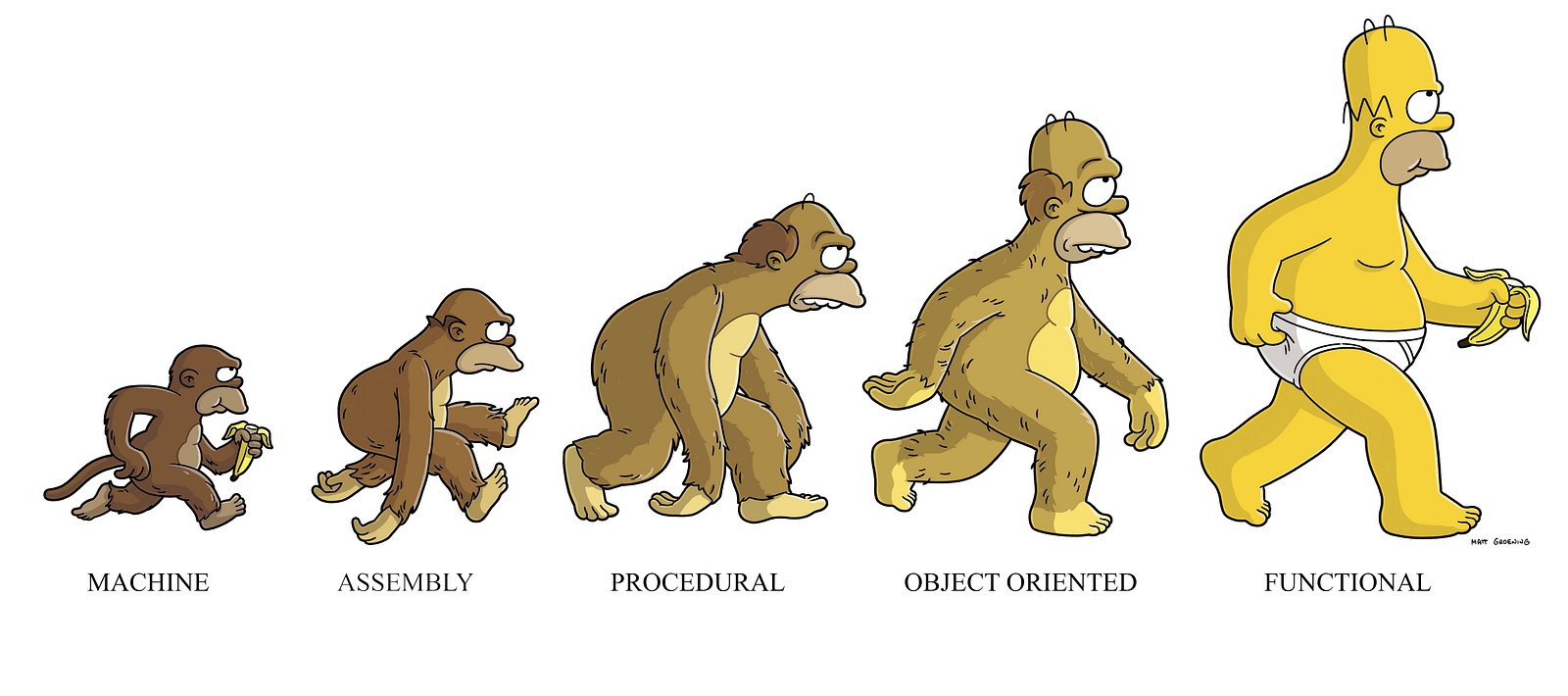Chapter 8: More robust, more compact, and more easily parallelizable; For an unlimited time offer, we present you: Functional Programming
This blog is about
how functional programming has a lot of advantages over traditional programming,
such as concurrent and parallel programming. One of the first things that pops
out when using Lisp is its syntax; simple yet flexible nested lists. This data
structure usage is one of the principal advantages of functional programming;
it allows to generate and execute other Lisp code.
Now we have Clojure,
which is a recent Lisp dialect that shines thanks to various features, one of which
being their high optimized data structures, that offers extensive support for
concurrency. A key concept in functional programming are abstractions, that
expresses an algorithm in terms of concepts instead of operations.
These functional
languages can be grouped together in a few groups, like “Clojure and the Lisp
Family” and ML family, where Standard ML, OCaml and F# are included. The difference
between this two groups are that ML is statically typed (Haven’t heard of F#
yet, it feels like programming languages are starting to base their names on
music).
Something interesting
about functional languages is how they manage concurrency and how they maintain
the data in a coherent state; the key here is that pure functional code has no
variables, which leads to no data coherence issues or need for locking. If
there are no variables to lock, then there are no way functions access these
non-existent variables and change the way they behave.
This is one of the
features I like the most, how these are managed with a very simple solution,
remove the variables. Of course, many people aren’t used to this type of
programming (like me, at the beginning of this course), but, as longer as I am
getting involved with this class, the more aware I am of the advantages and
disadvantages of how functional programming is a very powerful approach to
common programming.
References:
Hinsen Konrad (2009) The Promises of Functional Programming. Available on: http://webcem01.cem.itesm.mx:8005/s201713/tc2006/the_promises_of_functional_programming.pdf
References:
Hinsen Konrad (2009) The Promises of Functional Programming. Available on: http://webcem01.cem.itesm.mx:8005/s201713/tc2006/the_promises_of_functional_programming.pdf

Comments
Post a Comment